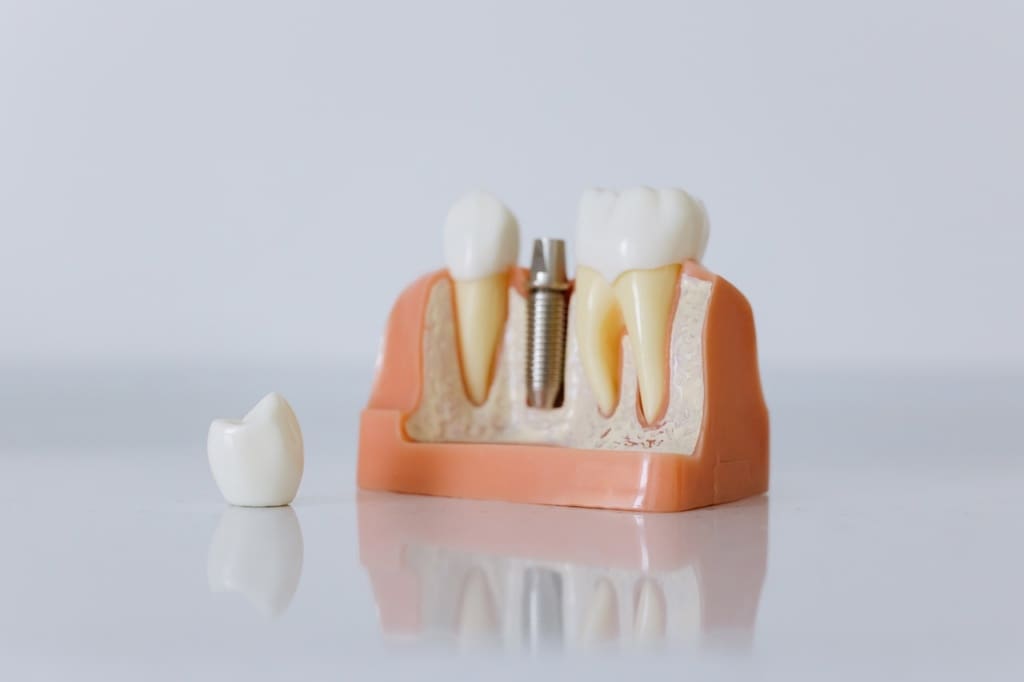Implant-supported dentures would have a few implants placed in your mouth along with your denture, which would snap onto the implants. This option can provide more stability and comfort than dentures alone.
With traditional dentures, a set of false teeth is mounted on a gum-colored base, which is then held in place by suction or a mild adhesive. Implants, on the other hand, are surgically inserted into one’s jawbone. Once the implants have healed and bonded with the jawbone, they can support a denture or a bridge.
One of the benefits of implant-supported dentures is that they are much more stable than traditional dentures, making it easier to eat and speak. They also don’t slip or move around in your mouth, which can be a common problem with regular dentures. Another advantage is that implants help preserve bone mass and prevent the facial collapse that can occur with traditional dentures.
If you are considering dentures, talk to your dentist about whether traditional dentures or implant-supported dentures would be the best option for you. Here are the key differences between the two:
Cost
Dentures have been around for a long time and are a more affordable option. Implant-supported dentures are newer and more expensive because they require surgery to place them.
Functions
Dentures supported by implants are more stable and less likely to slip than traditional dentures. They also don’t have an artificial palate, so they don’t affect your sense of taste.
Jawbone Changes
When teeth are missing, the jawbone begins to break down or resorb. This happens because the body redistributes calcium to other parts of the body where it is needed, and the jawbone becomes less dense as a result.
Over time, the shape of the jaw changes, and the face can appear sunken. Dental implants are placed in the jaw to stimulate the bone, like the roots of teeth do. This prevents bone loss and consequent changes to the mouth and face.
Dentures eventually stop fitting well because the jawbone changes shape over time. This usually happens around five to seven years after getting dentures. Implants are different because they are permanent and should last for the rest of your life.
Maintenance
To care for traditional dentures, you need to take them out at night and soak them in a cleansing solution. You also need to brush them daily and rinse them after eating. Implant-supported dentures, on the other hand, can be brushed and flossed just like natural teeth. However, you should still see your dentist regularly for checkups and cleanings.
Recovery
An implant-supported denture is a denture that is attached to implants in the mouth. It is a more secure and stable option than a traditional denture, but it takes longer to recover from the surgery required to place the implants.
Conclusion
If you want dentures that feel and function more like natural teeth, implant-supported dentures may be the right choice for you. Traditional dentures are less expensive and can be made more quickly, but they don’t provide the same support and stability as implants. If you’re looking for a long-term solution for your oral health, ask your dentist about implant-supported dentures.
For top-quality dentures, turn to Northampton Dental Specialists Group, previously known as Clayton and Canby Dental. With more than 25 years of experience, we use the latest technology to provide you with a high-quality, comfortable dental experience. Our advanced training in many facets of dentistry allows us to perform most procedures right here in our office. Request an appointment.





